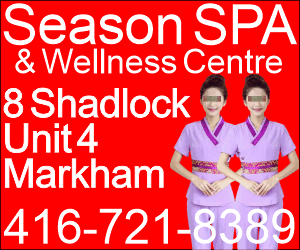San Francisco has proposed a new law to crackdown on brothels fronting as massage parlors. Meanwhile, a proposal to lift a ban on massage establishments along Union Street is up for a vote Monday.
The two proposals illustrate the challenge The City has in promoting the massage industry while at the same enforcing laws against sex work and human trafficking.
There are approximately 200 massage establishments and 1,200 practitioners in San Francisco, according to Veronica Vien, a spokesperson for the Department of Public Health. The department permits the establishments and inspects them for compliance. Last year, the department made 300 inspections, Vien said. She was unable to provide the number of violations issued.
On Tuesday, Supervisor Katy Tang introduced legislation that would grant the Public Health Department more power to crack down on illegal massage establishments. Illicit activity in massage parlors has created political challenges for past mayors and drawn complaints from residents.
Just last October, City Attorney Dennis Herrera announced he reached a $295,000 settlement in a lawsuit he filed against “the business owner of Queen’s Health Center, a notorious Financial District brothel.” And he also announced a lawsuit against “Paradise Health Center, a Richmond District massage parlor, for operating a covert brothel.”
“It is completely unacceptable to have a brothel across the street from a preschool,” Herrera said in a statement at the time. “The Department of Public Health gave notice that this had to stop but were ignored. Paradise and its landlord have no respect for the law or this community, and they have made a business out of exploiting women.” The lawsuit is pending in San Francisco Superior Court.
Tang said the legislation would give the department “other tools that they feel are necessary to help them do their job better in enforcing.”
The proposal increases penalties for violations and adds new regulations. For example, it requires that “doors that permit entry into any treatment room may not be equipped with locks or any device designed to prevent, impede, or delay entry into a room.”
The proposal also will prohibit advertising such as on the internet for sex worker services. A violation would come with a $1,000 fine and a 30-day permit suspension.
The proposal authorizes the department to access state, federal and local criminal history of permit holders and deny or revoke permits based on certain convictions, including “any offense related to prostitution or solicitation of prostitution.” It also creates a $191 fee for inspectors to return to the site to determine if violations were corrected.
Also under the proposal, the department would cease licensing massage practitioners next year, instead letting the California Massage Therapy Council handle all practitioner licensing.
Supervisor Catherine Stefani has proposed legislation that would lift the existing ban on massage establishments in the Union Street Neighborhood Commercial District, a northern part of The City between the Marina and Pacific Heights neighborhoods. The area runs along Union Street between Van Ness Avenue and Steiner, including a section of Fillmore Street to Lombard.
Massage establishments would need to obtain a conditional use permit, which could be appealed to the Board of Supervisors. The proposal also allows the three massage establishments operating there now illegally to legalize their businesses through an administrative process.
Stefani explained that the three businesses “missed the window to comply” with a 2015 massage parlor law, but have “been thoroughly vetted.”
“These are three legitimate businesses that serve the community,” Stefani said.
The Board of Supervisors of Land Use and Transportation Committee will vote on the legislation Monday. The Planning Commission unanimously approved it in March.
A memo by city planner Diego Sanchez said that “relaxing the prohibition on Massage Establishments in the Union Street NCD will help foster the growth of smaller, independently owned businesses.” The memo continued, “This also helps the Union Street NCD respond to the current changes in the retail sector posed by the growth of e-commerce. Because massage therapy is not easily obtained over the internet, conditionally allowing Massage Establishments is a viable strategy to help fill vacancies and respond to demand for experience oriented retail.”
This story has been updated from the print version to include comment from Supervisor Catherine Stefani.
jsabatini@sfexaminer.com
Click here or scroll down to comment
Let's block ads! (Why?)
The two proposals illustrate the challenge The City has in promoting the massage industry while at the same enforcing laws against sex work and human trafficking.
There are approximately 200 massage establishments and 1,200 practitioners in San Francisco, according to Veronica Vien, a spokesperson for the Department of Public Health. The department permits the establishments and inspects them for compliance. Last year, the department made 300 inspections, Vien said. She was unable to provide the number of violations issued.
On Tuesday, Supervisor Katy Tang introduced legislation that would grant the Public Health Department more power to crack down on illegal massage establishments. Illicit activity in massage parlors has created political challenges for past mayors and drawn complaints from residents.
Just last October, City Attorney Dennis Herrera announced he reached a $295,000 settlement in a lawsuit he filed against “the business owner of Queen’s Health Center, a notorious Financial District brothel.” And he also announced a lawsuit against “Paradise Health Center, a Richmond District massage parlor, for operating a covert brothel.”
“It is completely unacceptable to have a brothel across the street from a preschool,” Herrera said in a statement at the time. “The Department of Public Health gave notice that this had to stop but were ignored. Paradise and its landlord have no respect for the law or this community, and they have made a business out of exploiting women.” The lawsuit is pending in San Francisco Superior Court.
Tang said the legislation would give the department “other tools that they feel are necessary to help them do their job better in enforcing.”
The proposal increases penalties for violations and adds new regulations. For example, it requires that “doors that permit entry into any treatment room may not be equipped with locks or any device designed to prevent, impede, or delay entry into a room.”
The proposal also will prohibit advertising such as on the internet for sex worker services. A violation would come with a $1,000 fine and a 30-day permit suspension.
The proposal authorizes the department to access state, federal and local criminal history of permit holders and deny or revoke permits based on certain convictions, including “any offense related to prostitution or solicitation of prostitution.” It also creates a $191 fee for inspectors to return to the site to determine if violations were corrected.
Also under the proposal, the department would cease licensing massage practitioners next year, instead letting the California Massage Therapy Council handle all practitioner licensing.
Supervisor Catherine Stefani has proposed legislation that would lift the existing ban on massage establishments in the Union Street Neighborhood Commercial District, a northern part of The City between the Marina and Pacific Heights neighborhoods. The area runs along Union Street between Van Ness Avenue and Steiner, including a section of Fillmore Street to Lombard.
Massage establishments would need to obtain a conditional use permit, which could be appealed to the Board of Supervisors. The proposal also allows the three massage establishments operating there now illegally to legalize their businesses through an administrative process.
Stefani explained that the three businesses “missed the window to comply” with a 2015 massage parlor law, but have “been thoroughly vetted.”
“These are three legitimate businesses that serve the community,” Stefani said.
The Board of Supervisors of Land Use and Transportation Committee will vote on the legislation Monday. The Planning Commission unanimously approved it in March.
A memo by city planner Diego Sanchez said that “relaxing the prohibition on Massage Establishments in the Union Street NCD will help foster the growth of smaller, independently owned businesses.” The memo continued, “This also helps the Union Street NCD respond to the current changes in the retail sector posed by the growth of e-commerce. Because massage therapy is not easily obtained over the internet, conditionally allowing Massage Establishments is a viable strategy to help fill vacancies and respond to demand for experience oriented retail.”
This story has been updated from the print version to include comment from Supervisor Catherine Stefani.
jsabatini@sfexaminer.com
Click here or scroll down to comment
Let's block ads! (Why?)


































































































